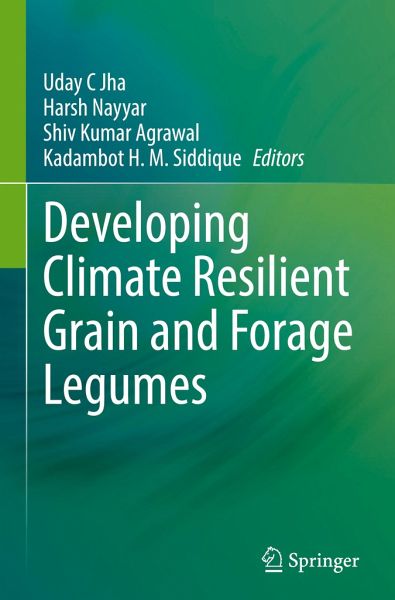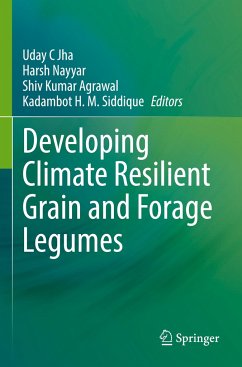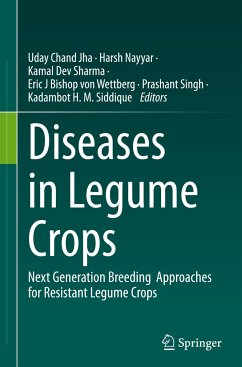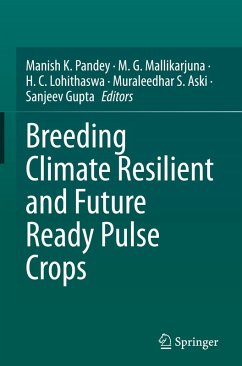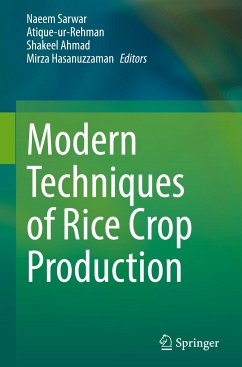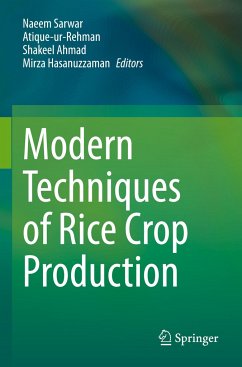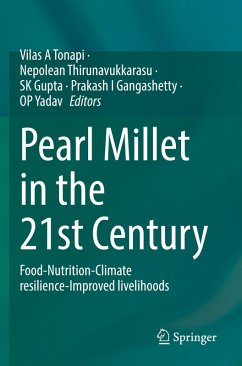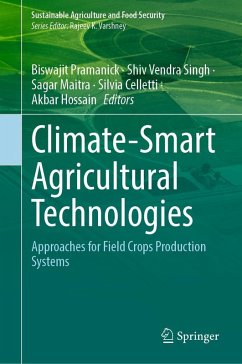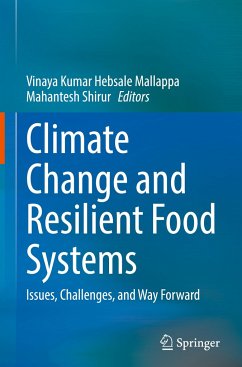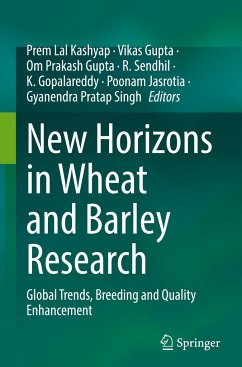Dr. Uday C Jha graduated from Visva-Bharati University, Santiniketan, India. He is working in the area of grain legume breeding, genetics, and genomics for abiotic stress tolerance since 2010 at the Indian Institute of Pulses Research, Kanpur, ICAR, India. He has more than 32 peered-reviewed international publications and 1 edited book. He has attended and delivered oral and poster presentation in various national and international conferences. He is associated in developing six chickpea varieties. Dr. Jha was awarded with ISPRD fellowship in 2016 by the Indian Society of Pulses & Research Development (ISPRD) and Young Scientist Award by IJBSM society in 2017 at Jaipur India. He has also received the Chickpea Team Award in 2020 from IIPR, Kanpur. He is serving as editorial board member of the journal BMC Plant Biology. Professor Harsh Nayyar is currently a professor in the Department of Botany, Panjab University, Chandigarh. He graduated from Punjab Agricultural University, India, and worked at the Indian Council of Agricultural Research and H.P. Agricultural University, Palampur, India, prior to his present position. His research program aims to study the responses of various food legumes such as chickpea, lentil, mungbean, and urdbean to abiotic stresses like heat, drought, and cold as well as their combination. He is developing convenient and easy screening methods to identify stress-tolerant legumes and also investigating the mechanisms at various organizational levels underlying stress tolerance. He has published about 140 research papers in peer-reviewed high impact factor research journals. Dr Shiv Kumar holds a Ph.D. in plant breeding from the GB Pant University of Agriculture and Technology, Pantnagar, India. His area of expertise includes crop improvement through resistance breeding, widening the genetic base through pre-breeding, and development of genetic and genomic resources in food legumes. Duringthe 30 years of his professional career, he, in collaboration with national partners, has contributed to the development of 59 lentil, 5 mung bean, 2 urdbean, 1 rice, and 3 grass pea varieties and published 196 peer-reviewed journal articles, 72 book chapters, 9 books, 7 technical bulletins, and 2 training manuals. He is a fellow of professional societies including the International Legumes Society, the Indian Society of Genetics and Plant Breeding, and the Indian Society of Pulses Research and Development. Professor Dr. Kadambot Siddique is the Hackett Professor of Agriculture Chair and Director of The UWA Institute of Agriculture, The University of Western Australia. He has a national and international reputation in agricultural science, especially in the fields of crop physiology, production agronomy, farming systems, genetic resources, breeding research in cereal, grain and pasture legumes, and oilseed crops. He has publishedmore than 580 scientific papers and book chapters and books. Professor Siddique is a highly cited researcher (Hi Ci) in agricultural science and plant and animal science (Thomson Reuters/ Clarivate Analytics).He is a fellow of the Australian Academy of Technological Sciences and Engineering (FTSE), the Australian Agricultural Institute, and the Indian National Academy of Agricultural Sciences (FNAAS). Prof. Siddique is a fellow of the African Academy of Sciences (FAAS) (first Australia to be elected to the Academy). He is also a fellow of the Indian Society of Plant Physiology.
